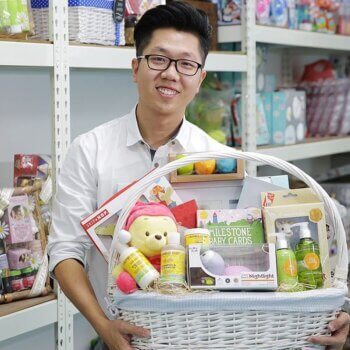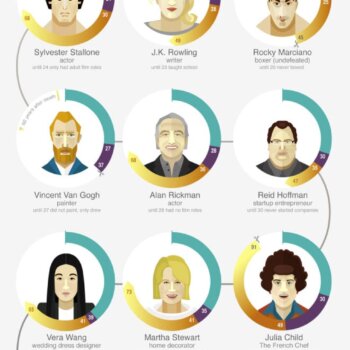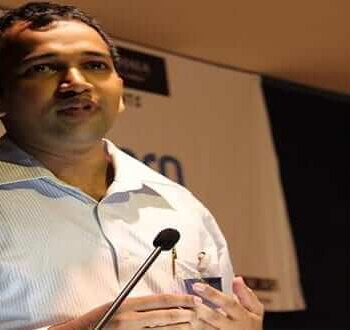Surrounded by empowering women, it was no surprise Naomi Jacob would lead an entrepreneurial life.
What’s your story?
Despite growing up in a sleepy backwater town that is probably most famous for inspiring Arundhati Roy’s novel, The God of Small Things, I was surrounded by empowered and entrepreneurial women. From my mum, an architect who runs her own design consultancy and teaches design, to the founder and headmistress of my school who championed feminism, there was no lack of role models. I knew quite early on that I wanted to be an entrepreneur and that whatever venture I embarked on would not distinguish social and environmental impact from our bottomline.
I got married in 2013, and my mother gave me two saris as part of my trousseau that she asked me to take special care of. They were from my grandmother’s time and the reason they were extra special was because the skill required for the particular weave no longer existed. It really got me thinking that it was a shame that so much heritage could be lost in the space of one generation. This ultimately spurred my decision to co-found Coopita – a platform that showcases the skills and craft prowess of artisan communities across Asia.
What excites you most about your industry?
The potential for innovation and the scale at which impact can be created. The craft sector is the second largest employer, second only to agriculture, in a number of countries in Asia.
What’s your connection to Asia?
I’ve lived, studied and worked all my life in Asia – in India and Singapore. I have seen how, from being a destination where most people just wanted to escape from by immigrating to the US, today Asia holds the promise of the future.
Asia to me is amazing because it has seen so many influences throughout history, and instead of losing our culture and tradition, Asian countries take in the customs and traditions of these outside influences and create something totally unique.
Favourite city in Asia for business and why?
Singapore is definitely the easiest city to do business in but I’m super excited about the potential for doing business in tier 2 cities in India such as Kochi.
What’s the best piece of advice you ever received?
Let your passion find you. Go out and do what you’re good at, and you’ll be really happy with your job, instead of struggling to find your passion.
Who inspires you?
There is always going to be a special place in my heart for Elizabeth Wu and the Trehaus team – their vision and hard work allow me to function as a mum and a woman in business. I’m inspired by how they took what a lot of working mums would consider to be an either or choice and just created a third option where you could have both, thereby solving a real problem and creating real value and impact.
What have you just learnt recently that blew you away?
That my ten month old baby can eat three whole slices of crusty, kraftkorn bread in one sitting, even though he doesn’t have teeth. Respect.
But seriously, I learnt that just because something is labelled organic or bio, it does not necessarily mean that it is better for the planet. Take organic cotton for instance – a recent article on Quartz talked about how your organic cotton t-shirt may have actually used up more resources to produce than one made of conventionally grown cotton, and could have a greater overall impact on the environment. Perhaps underlying this is the revelation that perhaps there is no silver bullet fix and the only solution for saving our planet is simply that humans have to consume much, much less.
If you had your time again, what would you do differently?
I’m not even thirty yet so I haven’t lived this life fully, to think about redoing the 29 years I’ve had. But probably my advice to my younger self would’ve been to consume way less and use the money to travel way more.
How do you unwind?
Mum size glasses of red wine, an evening out with my husband or friends and sometimes just disappearing into a good book (fiction only) or a murder mystery show on Netflix.
Favourite Asian destination for relaxation? Why?
Sipping coconut water while watching the sun set in the backwaters of Kerala or enjoying hot tea in the chilly embrace of Munnar in the Western Ghats. You can take the girl out of Kerala but Kerala will remain in her heart. It also helps that my folks take care of the 10 month old rugrat when we are there.
Everyone in business should read this book:
I’m going to be completely honest here and say that I haven’t read that many business books. I enjoyed titles such as Too Big to Fail, The Big Short and other books that are more investigative in nature as well as titles such as Girl Boss and Lean In, which share the voices of women who have smashed all glass ceilings. Perhaps one of the books that really gave me a different perspective was Nudge by Sunstein and Thaler – which explained behavioural biases and got me interested in behavioural economics. I also remember when The Fortune at the Bottom of the Pyramid came out, it was an eye opener for me as well to look at the case studies where businesses managed to tweak their model to provide goods and services to the poorest segments of society.
Shameless plug for your business:
Coopita aims to change the way the “Made in Asia” label is perceived today by showcasing the hands, faces and stories of makers who are keeping alive the finest traditional craft skills across Asia. We work with over 200 craft communities across 10 countries in Asia at present.
How can people connect with you?
You can follow our page on Fb (Coopitaasia), Instagram (Coopita_asia) or email me at [email protected]
Twitter handle?
coopita_asia
—
This interview is part of the ‘Callum Connect’ series of more than 500 interviews
Callum Laing is an entrepreneur and investor based in Singapore. He has previously started,
built and sold half a dozen businesses and is now a Partner at Unity-Group Private Equity and Co-Founder of The Marketing Group PLC. He is the author two best selling books ‘Progressive Partnerships’ and ‘Agglomerate’.
Connect with Callum here:
twitter.com/laingcallum
linkedin.com/in/callumlaing
Download free copies of his books here: www.callumlaing.com
































